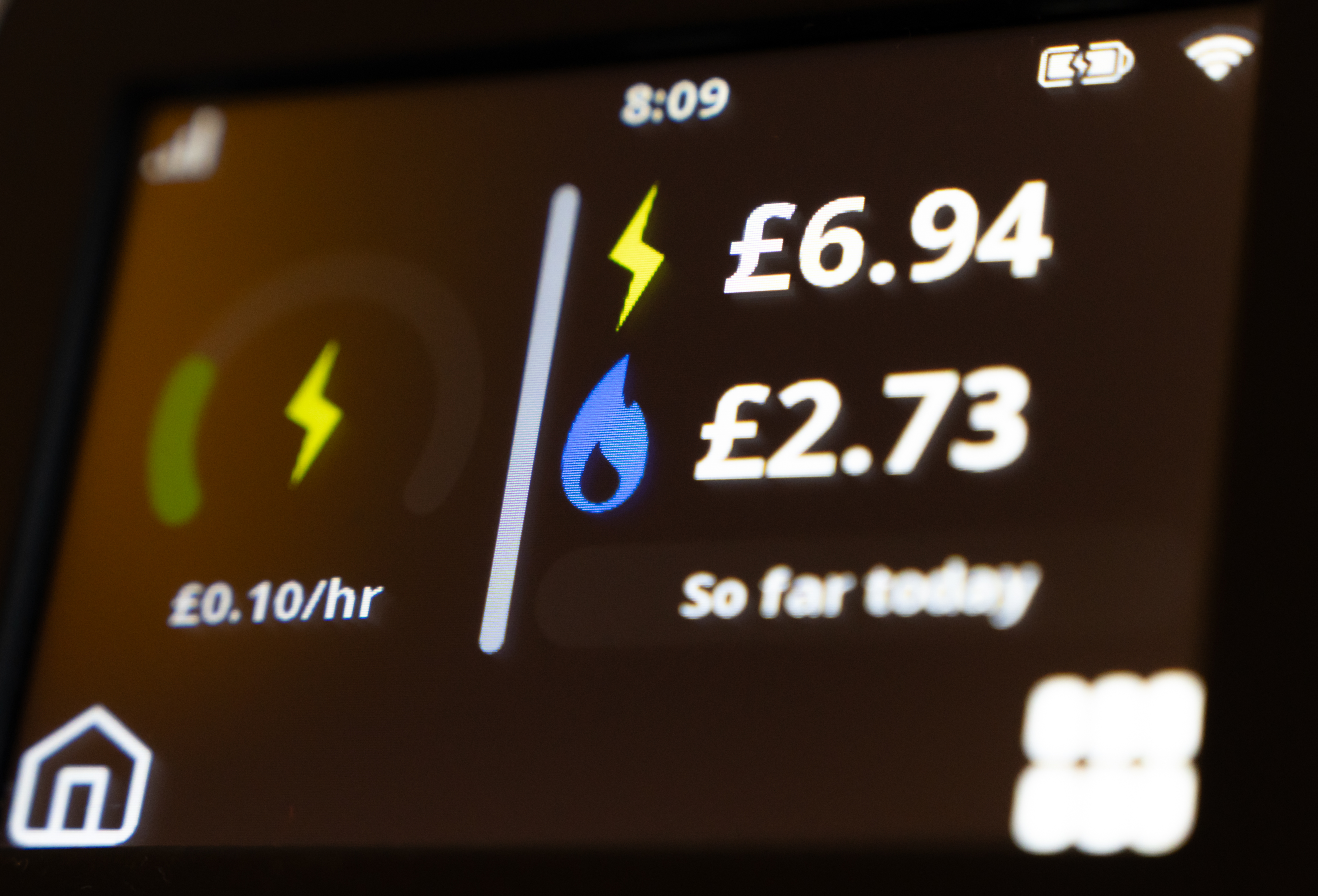Energy bills to rise by 0.2% in January 2026
Costs are rising to cover funding of the Sizewell C nuclear project in Suffolk


Get the latest financial news, insights and expert analysis from our award-winning MoneyWeek team, to help you understand what really matters when it comes to your finances.
You are now subscribed
Your newsletter sign-up was successful
Want to add more newsletters?

Twice daily
MoneyWeek
Get the latest financial news, insights and expert analysis from our award-winning MoneyWeek team, to help you understand what really matters when it comes to your finances.

Four times a week
Look After My Bills
Sign up to our free money-saving newsletter, filled with the latest news and expert advice to help you find the best tips and deals for managing your bills. Start saving today!
The Ofgem energy price cap will rise by 0.2% for the first three months of 2026, taking the average dual-fuel household bill to £1,758 per year in the first quarter.
It comes after the regulator announced a rise to the energy price cap of 2% to £1,755 per year between this October and December.
The January rise will see the average household paying for gas and electricity by direct debit pay an extra 28p per month, or £3.36 a year between January and March, compared to now.
MoneyWeek
Subscribe to MoneyWeek today and get your first six magazine issues absolutely FREE

Sign up to Money Morning
Don't miss the latest investment and personal finances news, market analysis, plus money-saving tips with our free twice-daily newsletter
Don't miss the latest investment and personal finances news, market analysis, plus money-saving tips with our free twice-daily newsletter
How much more you’ll pay depends on your usage as the price cap just sets a limit on how much suppliers can charge customers for one unit of electricity and gas.
Ofgem said year-on-year, the new January cap was 2%, or £37 per year, lower than the same three months in 2025.
Tim Jarvis, director general of Markets at Ofgem, said: “While energy prices have fallen in real terms over the past two years, we know people may not be feeling it in their pockets.”
Ofgem said wholesale energy costs were “stable”, having fallen by 4% over the past three months.
However, the regulator said the price cap was rising in January due to government policy and operating costs, including funding the Sizewell C nuclear project in Suffolk.
| Header Cell - Column 0 | Energy price cap per unit and standing charge 1 October to 31 December 2025 | Energy price cap per unit and standing charge 1 January to 31 March 2026 |
|---|---|---|
Electricity | 26.35 pence per kWh 53.68 pence daily standing charge | 27.69 pence per kWh 54.75 pence daily standing charge |
Gas | 6.29 pence per kWh 34.03 pence daily standing charge | 5.93 pence per kWh 35.09 pence daily standing charge |
What is the energy price cap?
The price cap came into effect in January 2019 and was introduced by Ofgem to stop customers on default tariffs being overcharged by energy suppliers.
Default tariffs are typically the most expensive deals for households.
The price cap sets a limit on how much energy firms can charge customers per unit of electricity and gas, and for their standing charge. It used to be changed every six months but is now amended every three months.
Because the price cap sets a limit on the amount customers are charged per unit of gas and electricity, this means you may pay more or less than others depending on your usage.
Where you live also affects how much you pay as there can be different regional rates, as well as how you pay for your energy.
The price cap applies to you if you’re on a default tariff (not a fixed tariff) and pay by direct debit, standard credit, prepayment meter or through an Economy 7 meter.
The Ofgem price cap only applies to households in England, Wales and Scotland as Northern Ireland has its own regulator, the Utility Regulator.
How to save money on your energy bills
Ofgem says around 34 million customers are on default, or standard variable, tariffs. However, these are usually more expensive than fixed tariffs, where you pay the same rate over a fixed period of time.
Fixed tariffs can save you money if you desire certainty over what rate you’ll pay, but you can end up paying more than those on default tariffs if wholesale energy prices fall and feed into the price cap. Fixed tariffs also come with exit fees if you leave before the term is up.
If you want to sign up for a fixed tariff, you can shop around for the best deals via comparison sites like Go.Compare, MoneySuperMarket or MoneySavingExpert.com.
Gareth Kloet, expert at Go.Compare Energy, said: “Not every deal will work out cheaper for everyone, so it’s important to think about your own energy use.”
Ofgem also says the eight million customers paying for their energy by standard credit could also save £136 a year by switching to Direct Debit.See our explainer here on 14 other ways to save on your energy bill.
Get the latest financial news, insights and expert analysis from our award-winning MoneyWeek team, to help you understand what really matters when it comes to your finances.

Sam has a background in personal finance writing, having spent more than three years working on the money desk at The Sun.
He has a particular interest and experience covering the housing market, savings and policy.
Sam believes in making personal finance subjects accessible to all, so people can make better decisions with their money.
He studied Hispanic Studies at the University of Nottingham, graduating in 2015.
Outside of work, Sam enjoys reading, cooking, travelling and taking part in the occasional park run!
-
 Should you buy an active ETF?
Should you buy an active ETF?ETFs are often mischaracterised as passive products, but they can be a convenient way to add active management to your portfolio
-
 Power up your pension before 5 April – easy ways to save before the tax year end
Power up your pension before 5 April – easy ways to save before the tax year endWith the end of the tax year looming, pension savers currently have a window to review and maximise what’s going into their retirement funds – we look at how